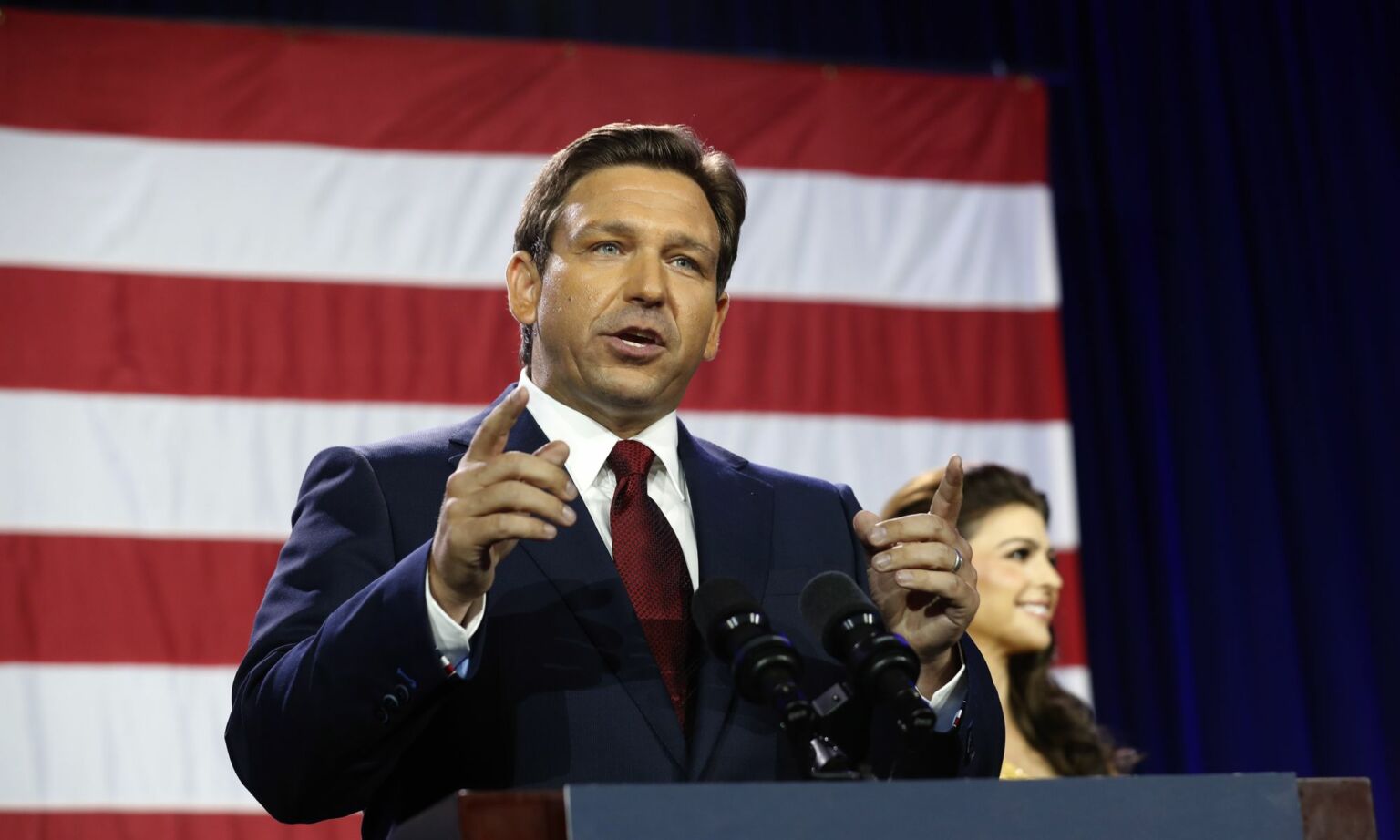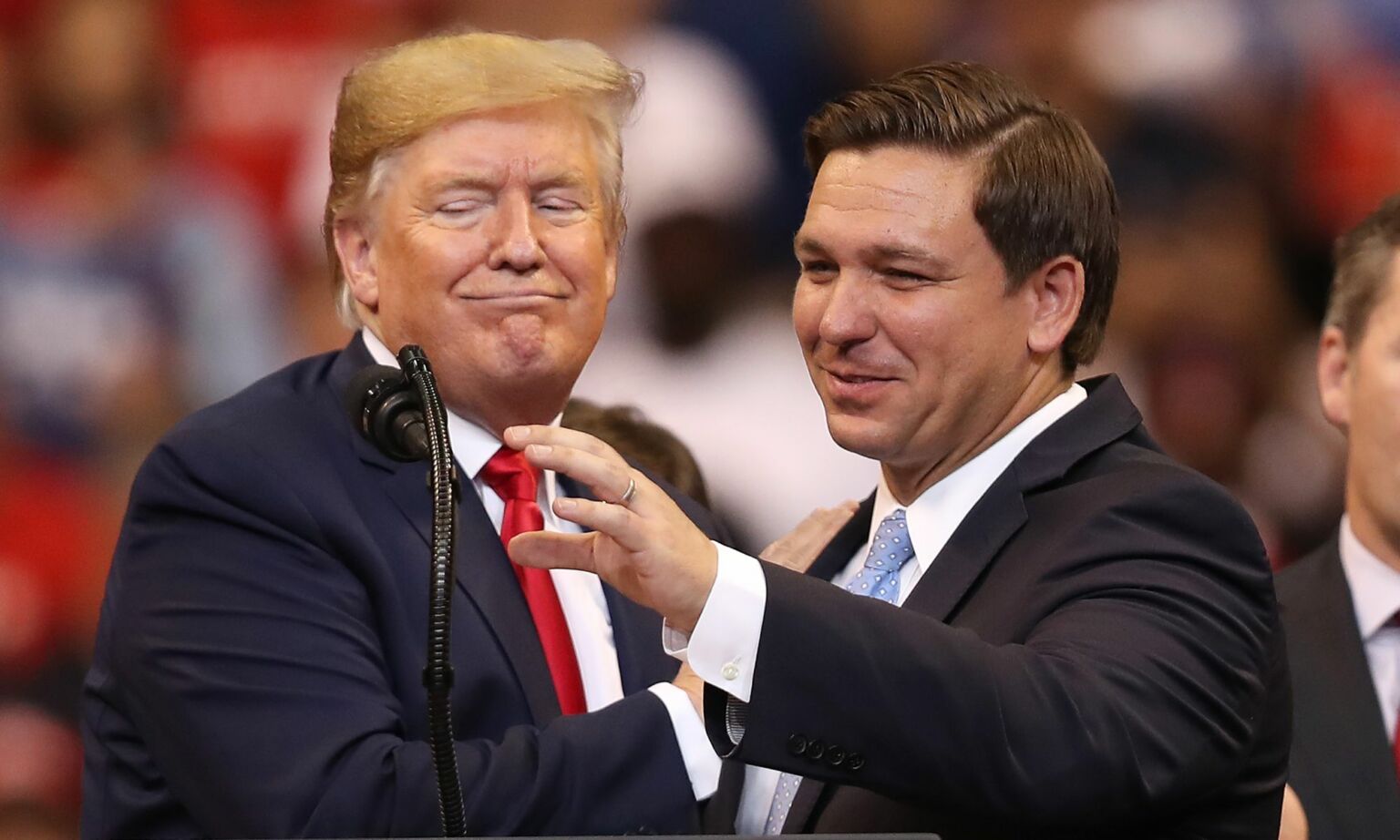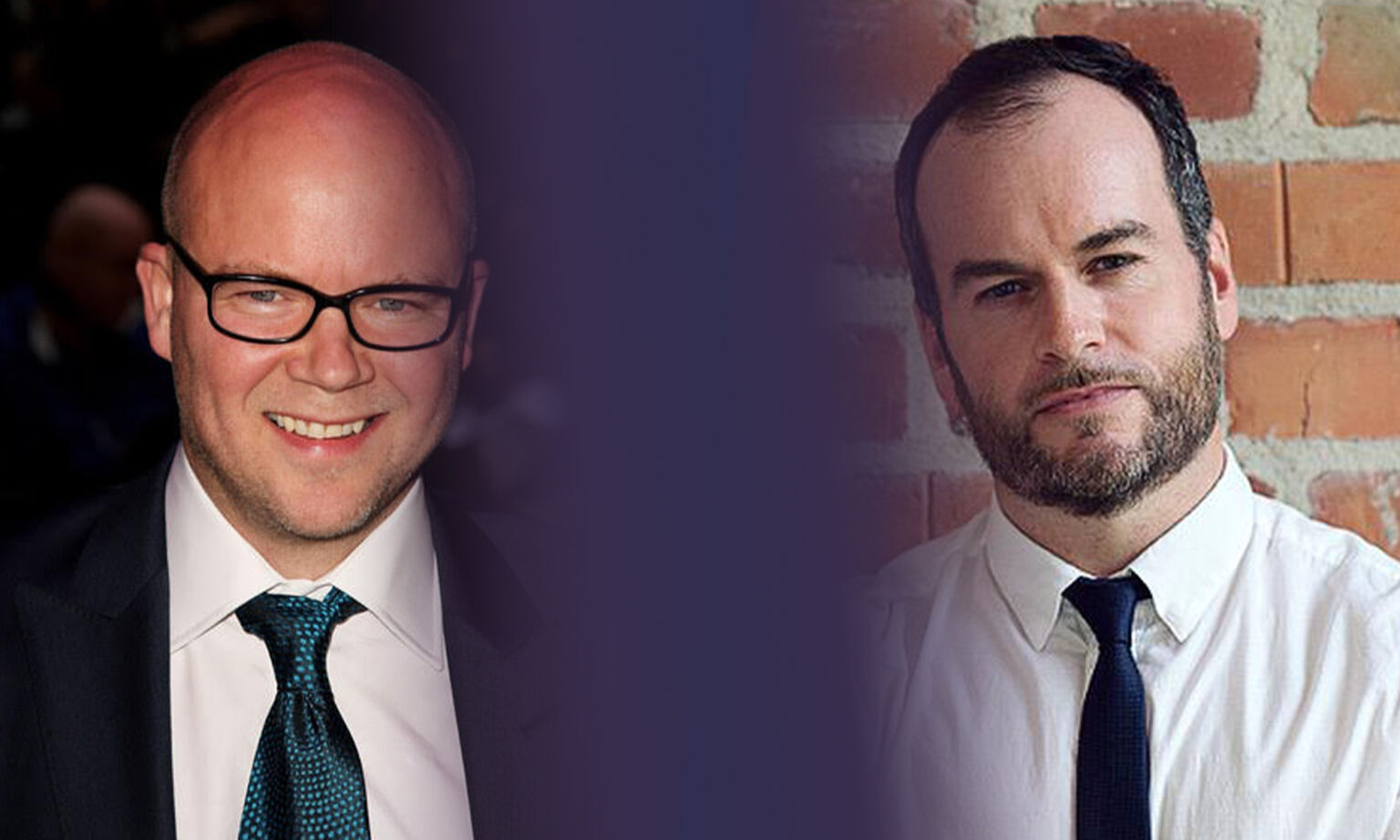
Long-read
The populist who gets things done
With Ron DeSantis, we see American populism shifting from words to action.
Want to read spiked ad-free? Become a spiked supporter.
Donate to spiked this Christmas, and help keep us free, fearless and independent.
Ron DeSantis is the man of the moment in American politics. The Republican governor of Florida first gained a national profile in 2020 for defying Covid lockdown orthodoxy and later for his battles against woke. His smashing re-election victory in the Midterms this November – defeating his Democratic opponent by almost 20 percentage points – has propelled DeSantis to new heights. According to a recent poll, Republicans now prefer DeSantis over Trump to be the party’s presidential candidate in 2024 by a huge 23-point margin. The New York Post has declared him ‘DeFuture’. And he already leads Biden in one early election survey.
It is the breadth of DeSantis’s victory in November that has most excited Republicans. He turned a state that was recently considered ‘purple’ – that is, a toss-up between the Democrats and Republicans – into a deeply red state. He ‘rewrote the political map’, as he himself has put it, winning cities and suburbs across Florida, and support from a variety of demographic groups. His pick-ups included the formerly Democratic bastion of Miami-Dade County, which is 70 per cent Hispanic. The voters of Florida had a close-up view of DeSantis for four years and obviously liked what they saw.
In comparison to Trump, DeSantis just looks more dynamic. Virtually every one of Trump’s handpicked candidates was defeated in the Midterms, making Trump a big reason why a much-anticipated ‘red wave’ did not materialise. Trump also faces potential criminal charges for the ‘January 6’ attack on the Capitol and for the retention of confidential documents at his Florida home. The 76-year-old former president announced his candidacy for the 2024 election last month with a snoozer of a speech (some dubbed it ‘low energy’, referencing Trump’s jibe about Jeb Bush in 2016). His first post-announcement meeting was with an anti-Semitic celebrity (Kanye West) and an anti-Semitic nobody (Nick Fuentes).
DeSantis clearly gets under Trump’s skin. Trump’s nickname for him, ‘Ron DeSanctimonious’, is weak, given that he’s not remotely sanctimonious – another sign that Trump has lost his touch. In the past few weeks, Trump has launched unprovoked rants against DeSantis and has sulked about the Florida governor’s supposed disloyalty. In response, DeSantis has kept studiously quiet, which has only driven Trump more nuts.
‘Worse than Trump’
Perhaps predictably, DeSantis’s rise has led liberal commentators to set off alarm bells and issue dire warnings. He’s ‘just as bad as’ or ‘worse’ than Trump, they say. He’s ‘Trump 2.0’, but more efficient and ruthless, making him an even more dangerous threat to democracy, apparently. DeSantis has ‘made Trump’s lines, and lies, his own’, says Ruth Ben-Ghiat, an MSNBC columnist and scholar of fascism at New York University. DeSantis is a ‘constitutional ignoramus, a bully and a strongman’, according to Washington Post columnist Jennifer Rubin, and thus ‘as much a threat to America as Trump’.
It is clear what these people are trying to do with DeSantis – tar him with the same brush as Trump and create a negative image of him in the minds of voters outside of Florida. They want to make DeSantis’s name just as toxic as Trump’s and turn him into a candidate who no self-respecting person could consider voting for. So far, they have a long way to go. The Real Clear Politics polling average finds that most Americans have a favourable view of DeSantis, but a negative view of Trump. Still, the media spinners are only just getting started. If you thought the rhetoric about Trump being a ‘fascist’ was over the top, just wait to hear what they will say about DeSantis should he run.

As it happens, DeSantis is far from a Trump replica. It is true that both DeSantis and Trump represent a newer populist streak in the US, but the differences between the two are significant. DeSantis is a far more conventional politician. Trump sought to have the results of an election overturned – and he is still not over his loss in 2020. In an unhinged social-media post this month, Trump called for the ‘termination’ of the US Constitution, writing: ‘Do you throw the Presidential Election Results of 2020 OUT and declare the RIGHTFUL WINNER, or do you have a NEW ELECTION?’ DeSantis, meanwhile, has enacted his policies by playing by the rules, and has not endorsed Trump’s specious claims about the 2020 election. He has not made Trump’s ‘lines and lies’ his own.
The two men are fundamentally cut from different cloth. Trump is the son of a wealthy real-estate developer and received some $60million from his father to start his career. DeSantis is the son of working-class parents. He was admitted to Yale University and Harvard Law on his merits and had to take on jobs and loans to pay for it. Trump avoided the military draft five times. DeSantis served in the US Navy’s SEAL Team One and was deployed to Iraq.
Trump’s many character flaws – narcissism, petulance, inability to focus, lack of attention to detail, laziness – are not evident in DeSantis. While Trump talks a big game, he rarely delivers. Even his much-promised border wall was never built. DeSantis takes action and follows through. It’s going to be tough for the media to convince people that DeSantis is a ticket back to the chaos of the Trump years, because it’s just not true.
A popular populist
Most progressive critics of DeSantis fail to understand his popularity, and in particular how he has been able to win over Americans who previously voted Democrat. He is diametrically opposed to their own beliefs, so they cannot fathom why anyone would vote for him.
First and foremost, DeSantis earned his reputation – and popularity – with his response to Covid. He resisted imposing restrictions in Florida, such as stay-at-home orders, vaccination requirements and mask mandates. He focussed vaccination efforts and other protections on the most vulnerable, especially the elderly. At the same time, he kept Florida open – including its beaches, restaurants, bars and, most importantly, schools. Florida became synonymous with freedom. It was a refuge from the lockdowns. And so thousands from around the US flocked to DeSantis’s state.
In his Covid response, DeSantis exhibited a balanced understanding of the role of public-health experts. They were to be listened to, but as a political leader he had to weigh the broader considerations of society. Striking a populist note, in a speech he gave earlier this year, he also reeled off all that the elites had got wrong during the pandemic:
‘Not only were they wrong about schools, the elites were wrong about lockdowns, they were wrong about epidemiological models and the hospitalisation models. They were wrong about forced masking. They were wrong when they rejected the importance or even the existence of natural immunity.’
For defying Dr Anthony Fauci and the Biden administration, DeSantis was vilified by the media, who called him ‘DeathSantis’. Looking back, he was brave to stand up to all of these attacks, as we know he would have been held responsible if Florida’s death toll had really taken off. But DeSantis’s approach was entirely vindicated. The number of Covid-related deaths in Florida has been at about the national average (and that’s before adjusting for Florida’s higher-than-average elderly population). Meanwhile, Florida’s economic growth in 2022 outpaced that of the US as a whole. Its schools achieved improvements across almost all national educational categories, while other schools fell behind. And thousands continue to migrate to Florida.
In addition to his Covid stance, DeSantis’s national profile has been boosted by his battles over woke issues, like critical race theory and gender ideology. In his election-night speech, DeSantis took on the mantle of the culture warrior, echoing Winston Churchill’s ‘on the beaches’ speech: ‘We fight the woke in the legislature. We fight the woke in the schools. We fight the woke in the corporations. We will never, ever surrender to the woke mob. Florida is where woke goes to die.’
Unlike many Republicans who simply mouth off about woke to score points, DeSantis understands the gravity of the culture war. He understands how authoritarian the woke left’s agenda is, and the need to go on the offensive. He has pursued a substantive policy agenda against it, including reforms of higher education, the Stop WOKE Act (which restricts racial scapegoating in large institutions and corporations) and a ban on sexual-orientation and gender-ideology instruction for children under nine years old. And when the Walt Disney Company said it would oppose DeSantis’s restrictions on teaching sexuality and gender to young children, he hit back, taking away the company’s tax privileges. Disney has been in crisis ever since, facing a plummeting share price and having to fire its CEO.
DeSantis’s calculated engagements in the culture war show he appreciates a key vulnerability of the cultural left – woke is unpopular, and ordinary people are sick of it. Activists and pundits thought DeSantis would be viewed a bigot and would be isolated for his gender- and sexuality-instruction law, which they falsely labelled as the ‘Don’t Say Gay’ law. But it turns out that most people don’t want teachers discussing sex or transitioning with school kids. Sixty-seven per cent of parents and even 55 per cent of Democrats were supportive of the bill. DeSantis picked a fight he could win.
Taking on Covid lockdown fanatics and the woke mob was impressive, but these alone cannot explain DeSantis’s wide electoral support. His success also rests on a foundation of effective governance when it comes to the day-to-day matters of state – another key difference from Trump. This was most recently highlighted by Florida’s response to Hurricane Ian, where the state mobilised resources to quickly rebuild from the damage.

DeSantis doesn’t fit the caricature of the backwater red-state conservative that the media tries to pin on him. Much of his crossover appeal comes from his embrace of measures that are not typically associated with modern American conservatism. He increased Florida’s spending on environmental projects by $1.5 billion, and his Midterms campaign ads emphasised his green credentials (though he is more of a conservationist, seeking to make Florida resilient to climate change rather than endorsing extreme climate goals). He has also combined his school reforms with a $800million increase in teachers’ pay and created a programme to facilitate home purchases by educators, healthcare professionals and public-sector employees like police and firefighters. On abortion rights, he has signed a law that allows abortion up to the 15th week of pregnancy (with exceptions after that time) – a stance that is aligned with many European countries.
DeSantis the authoritarian?
Another common charge against DeSantis is that he is ‘authoritarian’. When you consider his record, this has it all backwards. Look where that claim is mainly coming from. The proponents of Covid mask mandates, mandatory vaccinations and lockdowns – some of the most drastic state restrictions on social life in our lifetimes – tend to be the very people calling DeSantis authoritarian. No, DeSantis was the one fighting for the freedom to live, work and go to school.
The woke left is also up-in-arms about DeSantis’s apparent ‘bullying’. Yet these are the same activists who seek to ban books and cancel speakers. Meanwhile, the Biden administration has imposed trans ideology on public institutions and has mandated race discrimination in the name of ‘equity’. The woke strictures that are now embedded in our institutions and culture represent the biggest threat to everyday freedom of speech and thought. And it is DeSantis who is standing up to that authoritarianism.
There are liberals who recognise the threat that woke cultural politics represents, but argue that DeSantis is wrong to use the power of the state to combat it. For the most part, their worries are overblown. For a start, DeSantis’s measures have democratic legitimacy – he was elected, and he mainly works via the state legislature. In contrast, woke policies are often imposed undemocratically by cultural institutions, corporations or administrative fiat. Generally, many of the concerns about DeSantis’s actions express a fear of exerting legitimate authority earned by democratic support.
Take DeSantis’s so-called Don’t Say Gay law. That law came in response to a grassroots campaign by parents, looking for help from the state. Not only did the bill pass the legislature, but it was also popular in wider society. DeSantis was not overstepping his power – public schools clearly come under the oversight of state government. And the law was crafted carefully to limit only class instruction of sexuality and gender (there is no limit on saying the word ‘gay’), and only up to a certain age. Did it impose new restrictions on teachers? Yes. Unfortunately, too many teachers have abused their positions of trust and have hijacked classrooms to impose their own moral visions, against the wishes of parents. The law was a reasonable way to restore balance in the face of woke excess.
Many other concerns about DeSantis’s actions are also exaggerated. Some saw DeSantis’s blow against Disney as incipient totalitarianism. But the special tax privileges that DeSantis took away are not an inherent right of companies. Besides, it was Disney that started the row by wading into politics. DeSantis’s shot across the bow effectively said ‘stay in your lane’.
Likewise, some were up in arms about DeSantis suspending Andrew Warren, a Democratic prosecutor in Tampa, back in August. Warren was elected, but he refused to prosecute the state’s laws relating to transgenderism, abortion and certain criminal cases, effectively declaring he had a veto over the democratic will of the people. Warren is taking DeSantis to court to challenge his suspension, but under Florida law a governor can remove any county officer for a variety of reasons.
There are aspects of DeSantis’s Stop WOKE Act that really do go too far and infringe on freedom of speech. The act responds to a real problem – the infiltration of critical race theory in educational settings. This ‘theory’ is really a form of indoctrination. The concepts it promotes, like ‘white privilege’, are presented as facts, beyond debate. But the law should have differentiated between public schools, where it is reasonable for a state government to set guidelines on educational content, and universities, where there should be few if any state restrictions on curricula. Still, these valid criticisms of some measures within the bill get lost amid the more exaggerated and over-heated claims.
President DeSantis?
On paper, the path for DeSantis to the top of the Republican Party is clear. For the party’s leaders and donors, Trump is an electoral albatross and, worst of all, a loser. He lost in the 2018 Midterms, the 2020 presidential election and, most recently, the 2022 Midterms. Even his rank-and-file supporters can see Trump has lost his touch, and growing numbers believe it’s time for him to hang it up. This provides an opening and DeSantis is primed to take it. In a presidential election, he would have a clear message: I showed the leadership to beat Covid. I made Florida a byword for economic dynamism and freedom. I can make the rest of America like Florida.
Things rarely work out so smoothly. For a start, Trump is unlikely to simply disappear. At some point, DeSantis will have to break his silence and take him on. He is likely to have some killer arguments against Trump – you can just imagine DeSantis grilling him over hiring Fauci for his Covid taskforce and failing to build a border wall. But he risks losing some of Trump’s supporters along the way. We also don’t know if all parts of the US, especially the working class of the rustbelt, will see themselves in the Florida example. And of course two years until 2024 is a lifetime in politics, giving DeSantis plenty of opportunities to screw up or just fade away.
What’s most intriguing in the rise of DeSantis is the potential for re-energised populist politics at the national level. As Michael Kazin notes in his book, The Populist Persuasion, populist movements have historically tended to run out of steam. They are often co-opted by traditional parties. Trump, being such a rogue character, was always unlikely to build a lasting legacy for populism. The question has always been whether he would drag the embryonic populist tendency in the US down with him. The promise of DeSantis – admittedly, an optimistic view, yet to be borne out – is that populism will not only continue past Trump, but also get stronger. He could represent a maturation of populism in the US, a shift from words to action.
Politicians disappoint more often than not, so I won’t be surprised if DeSantis doesn’t deliver. But so far DeSantis has earned his due. He’s a serious leader. He has become an ally to working people, especially the parents of school kids. His watchword is freedom. He passed the test of Covid well, unlike so many political leaders. He gets the importance of the culture war and has shown a desire and willingness to go on the offensive. These are big positives. American politics could do much worse.
Sean Collins is a writer based in New York. Visit his blog, The American Situation.

Toby Young and Brendan O’Neill – live and in conversation
Monday 19 December – 7pm to 8pm GMT
This is a free event, exclusively for spiked supporters.
Pictures by: Getty.
Who funds spiked? You do
We are funded by you. And in this era of cancel culture and advertiser boycotts, we rely on your donations more than ever. Seventy per cent of our revenue comes from our readers’ donations – the vast majority giving just £5 per month. If you make a regular donation – of £5 a month or £50 a year – you can become a and enjoy:
–Ad-free reading
–Exclusive events
–Access to our comments section
It’s the best way to keep spiked going – and growing. Thank you!






Comments
Want to join the conversation?
Only spiked supporters and patrons, who donate regularly to us, can comment on our articles.